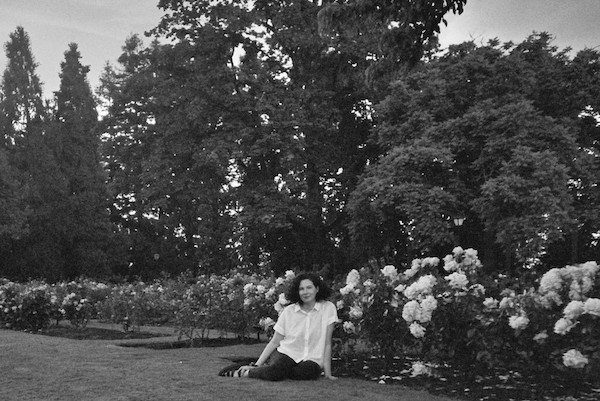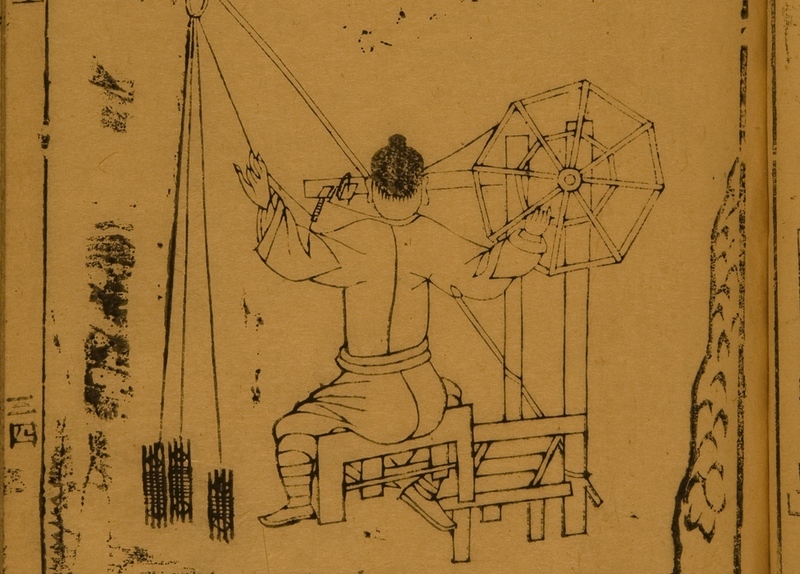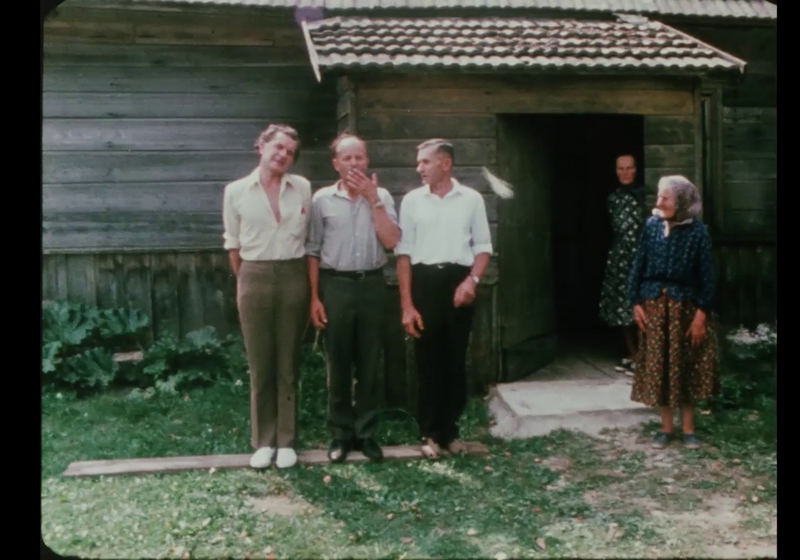EastEast’s open call participant Nadezhda Vikulina studies Russian, American, and Polish poetry. For our issue on dreams and daydreaming, she translated two poems by American poets from Team Mashallah and wrote a short introduction describing how their nostalgia for their native languages relates to her personal experience of traveling between Russian and English.
I first heard Kaveh Akbar’s and Safia Elhillo’s texts in Portland at one of the readings held by Team Mashallah—a group of five Muslim friends and poets who play an important role in the American literary scene. It was one of the events set up late on a spring evening in the suburbs as part of the American Writers Association annual meeting. The collections of all five poets can be easily found at Powell’s City of Books, an iconic Portland bookstore the size of a city block. In their texts, they often return to the experience of emigration, expressing a viscous nostalgic tenderness that one can feel due to the distance between countries and languages. “Do you Speak Persian?” shows Iran-born Akbar trying to recall phrases in his native language, while contemplating the night. “How to Say” is about Elhillo’s Sudanese roots and words in her native language imperceptibly disappearing from memory, but still returning in dreams. As the writer and academic Svetlana Boym once wrotewroteSvetlana Boym, The Future of Nostalgia (New York: Basic Books, 2008)., “The tenderness of exiles is about a revelation of possibility after the loss. Only when the loss has been taken for granted can one be surprised that not everything has been lost.”
At the time, these stories were especially clear to me. Teaching Russian to local students was a part of my master’s program at the University of Oregon. Apart from linguists and literary scholars, there were always several children of immigrants from Eastern Europe in the class. Most often, their acquaintance with Russian was limited to rare conversations at home: they could fluently answer simple questions, but having never had the chance to learn the Russian alphabet, they were not able to read words they knew when they saw them on the page. For some students, Russian was a blank slate, for others—a way to master the inner gap, a method of filling in a familiar outline.
Such contact with language contours occurs in Elhillo’s poem: realizing she can no longer speak her native language fluently, she fills in the ancient Arabic poetic form with “shining slivers of English.” At the same time, her style remains porous, the words seem to be pushing off each other, moving in opposite directions. This creates space for longing for the forgotten, but also for new versions of oneself. The space of Akbar’s poem expands to a cosmic scale in the very first lines, following the movement of Venus and the light of the stars. In this open world of the night sky, the poet himself moves "from one tongue to another" with a smoothness and determination of a celestial body. The author comes up to remember two words in Persian—“I miss you” and “good night”—and these also seem to answer his questions about learning and addiction. They do not answer them directly, but get reflected as light, and yet through repetition create new rhythms and structures in the world that the poet is trying to systematize.
At the end of my first year of studies, I had to give exams to my Russian students. One of them was pretty honest in admitting that while he showed moderate success in changing the cases of words, what he had managed to learn was just enough for him to be understood by his Russian grandmother’s dog. I booked tickets to travel home for the summer and there it took me a long time to return to my usual Russian—my mind was crowded with English words and constructions. This, however, did not bother me much—maybe because of the lessons Akbar’s and Elhillo’s poems had taught me. They showed that in a journey between languages, pauses open up when you cannot remember and choose words, and then with particular clarity and care you start noticing objects and their divine movement: flights across the ocean, stars of different hemispheres, books in a suitcase.
Kaveh Akbar “Do You Speak Persian?”
Some days we can see Venus in mid-afternoon. Then at night, stars
separated by billions of miles, light travelling years
to die in the back of an eye.
Is there a vocabulary for this—one to make dailiness amplify
and not diminish wonder?
I have been so careless with the words I already have.
I don’t remember how to say home
in my first language, or lonely, or light.
I remember only
delam barat tang shodeh, I miss you,
and shab bekheir, goodnight.
How is school going, Kaveh-joon?
Delam barat tang shodeh.
Are you still drinking?
Shab bekheir.
For so long every step I’ve taken
has been from one tongue to another.
To order the world:
I need, you need, he/she/it needs.
The rest, left to a hungry jackal
in the back of my brain.
Right now our moon looks like a pale cabbage rose.
Delam barat tang shodeh.
We are forever folding into the night.
Shab bekheir.
Safia Elhillo “How to Say”
in the divorce i separate to two piles books: english
love songs: arabic
my anger my schooling my long repeating name english
english arabic
i am someone’s daughter but i am american born it shows in
my short memory
my ahistoric glamour my clumsy tongue when i forget the word
for [ ] in arabic
i sleep unbroken dark hours on airplane home & dream
I’ve missed my
сonnecting flight i dream a new & fluent mouth full of gauzy
swathes of arabic
i dream of my alternate selves each with a face borrowed
from photographs of
the girl who became my grandmother brows & body rounded &
cursive like arabic
but wake to the usual borderlands i crowd shining slivers of
english to my mouth
iris crocus inlet heron how dare i love a word without
knowing it in arabic
& what even is translation is immigration without
irony safia
means pure all my life it’s been true even in my
clouded arabic
Nadezhda Vikulina’s text was translated from Russian by Olga Bubich












